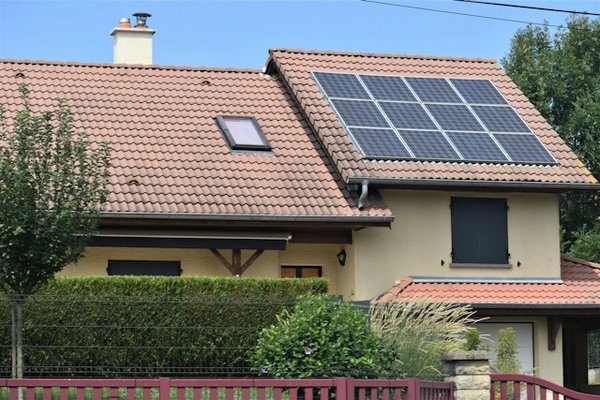In a world where sustainability has transitioned from a buzzword to a necessity, energy-efficient real estate stands at the forefront of eco-friendly living and responsible investment. The real estate sector has a substantial impact on energy consumption, with buildings accounting for a significant percentage of the global energy use. Energy-efficient buildings not only contribute to a greener planet by reducing carbon footprint but also yield considerable energy savings and lower operating costs for homeowners and businesses alike. As you look to either invest in or retrofit properties, understanding the best practices for creating and maintaining energy-efficient buildings is essential. Whether it’s implementing renewable energy systems like solar panels or optimizing heating and water heating, these practices help reduce energy consumption and promote a sustainable living environment.
The Foundation of Energy Efficiency in Buildings
Before diving into specific strategies, it’s crucial to understand the foundation of energy efficiency in real estate. Energy efficiency, in the context of buildings, refers to the use of technologies and practices that minimize the amount of energy required to provide heating, cooling, lighting, and other services without compromising on comfort or utility.
Understanding Energy Efficiency Ratings
Energy efficiency in real estate is often measured by specific ratings and certifications, such as the Energy Star rating or LEED certification. These benchmarks provide a framework for assessing a building’s performance and guide towards improvements.
Holistic Approach to Design and Construction
The best practices for energy efficiency encompass a holistic approach, integrating smart design and advanced materials from the construction phase. This involves orientation of the building to maximize natural light, using high-quality insulation, and selecting energy-efficient windows and doors.
Regular Audits and Upgrades
Regular energy audits are key to maintaining efficiency in existing buildings. These assessments can identify opportunities for upgrades, whether it’s improved insulation, upgraded HVAC systems, or the installation of energy-efficient appliances.
Green Building Techniques for Real Estate
Green building involves the use of environmentally friendly materials, designs, and construction methods. These techniques not only aim for energy efficiency but also enhance the overall sustainability of buildings.
Sustainable Materials and Resources
Using sustainable materials like recycled steel, bamboo, or cork flooring can significantly reduce the environmental impact of construction and improve the building’s energy performance.
Advanced Building Envelopes
The building envelope serves as the barrier between the interior and exterior environments. Advanced envelopes with high-performance insulation and sealant systems are crucial in minimizing energy loss.
Natural Lighting and Ventilation
Maximizing natural light and ventilation reduces the need for artificial lighting and mechanical ventilation, thus lowering energy consumption. Strategic placement of windows and the use of skylights can contribute significantly to a building’s efficiency.
Renewable Energy Integration in Real Estate
Integrating renewable energy sources is a powerful way to increase the energy efficiency of real estate properties. These sources provide clean energy and can lead to significant cost savings over time.
Solar Energy Systems
Solar panels are among the most popular renewable energy solutions for buildings. They can be installed on rooftops or as part of solar farms to generate electricity for onsite use or to feed into the grid.
Wind Turbines for Commercial Properties
While less common, small-scale wind turbines can be an effective solution for commercial real estate properties situated in windy areas, generating additional power to offset energy consumption.
Geothermal Heating and Cooling
Geothermal systems utilize the stable temperatures underground to provide energy-efficient heating cooling solutions, significantly reducing reliance on traditional HVAC systems.
Energy Efficiency in Heating and Water Systems
Heating and water systems are substantial contributors to a building’s energy consumption. Upgrading and optimizing these systems can lead to impressive energy savings.
High-Efficiency Boilers and Heaters
Replacing old, inefficient boilers and heaters with modern, high-efficiency models can drastically lower energy use and reduce heating costs.
Smart Thermostats and Controls
Smart thermostats and control systems allow for precise temperature regulation and scheduling, ensuring that energy is not wasted heating or cooling unoccupied spaces.
Water Heating Solutions
Investing in energy-efficient water heating technologies, such as on-demand or tankless water heaters, can lead to significant reductions in energy consumption and cost.
Maximizing Savings with Energy-Efficient Practices
Adopting energy efficiency practices in real estate is not just environmentally responsible, but also financially rewarding. By reducing energy use, building owners can experience noticeable drops in their utility bills.
Energy-Efficient Lighting
Switching to LED lighting and implementing intelligent lighting control systems can dramatically decrease electricity usage and extend bulb life.
Insulation and Air Sealing
Proper insulation and air sealing can prevent energy loss through walls, roofs, and floors, making a profound impact on energy costs.
Educating Occupants
Involving tenants and occupants in energy-saving practices is essential. Educating them on simple actions, like turning off lights and appliances when not in use, can support overall energy efficiency efforts.
Conclusion: Cementing the Future with Energy-Efficient Real Estate
The move towards energy-efficient real estate is more than a trend; it’s a pivotal shift in the ways you live, work, and interact with the environment. Best practices in green building, solar energy, and efficient heating and water systems are not just commendable, they’re critical in facing the challenges of climate change and resource scarcity. By embracing these strategies, you help to forge a sustainable future, reduce operating costs, and pave the way for a small business to grow conscientiously. In this journey, every effort to improve energy performance translates to a more sustainable and economically sound real estate market. Remember, the choices you make today in building and retrofitting properties will resonate for years to come, underlining the importance of adopting energy-efficient best practices in every facet of real estate development and management.
